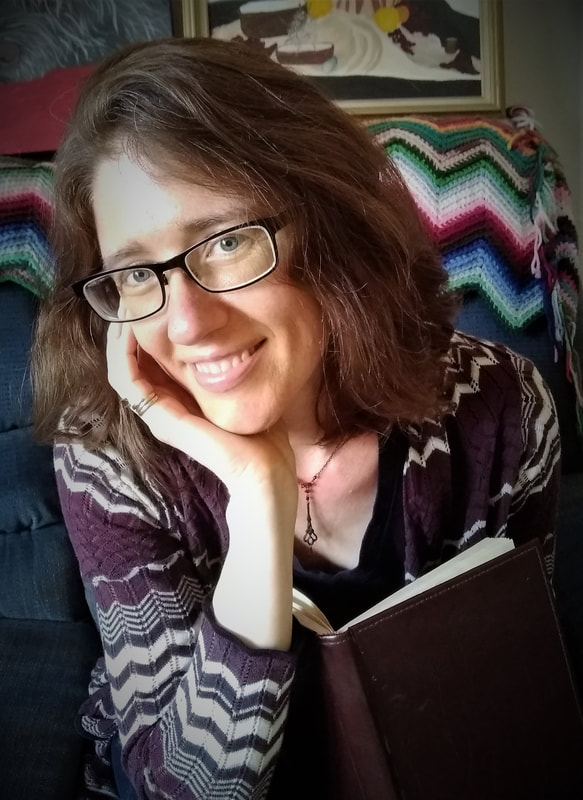|
I love big words. There’s nothing quite like a bunch of polysyllabic words on a page. And I’m not the only one. There’s a plethora of fellow logophiles out there! I can think of few words more fitting of their definition. Sesquipedality refers to the habit or custom of using long, fancy words. Its root literally means "a foot and a half long." Sure, it’s a pretty word, but what does it matter in our lives and the world of literature? Big words sound beautiful and make us sound smart. But we’re forgetting the other half of the writing equation—the reader. At its heart, writing is a conversation between the author and the reader. Its purpose is to convey a message. And let’s be honest, long, fancy words are a lot more fun to write than to read. Now, if you’re writing in your journal for no one’s enjoyment but your own, no problem. But if you want someone else to read—and understand and maybe even enjoy—what you write, you might want to choose more accessible language. Why do we do it?There are several reasons we develop sesquipedalian tendencies. If you’re reading this, then, like me, you’re probably a bibliophile and/or a logophile. (I couldn’t help myself!) In human English, you like books and words. We sometimes get caught up in the beauty of the words. Or the efficiency of having one neat, tidy word that perfectly describes a concept. It wraps it all up in a single envelope. One who loves books = bibliophile. Another reason—often seen in academic or legal texts—is a desperate attempt to sound smart. It’s about ego and pride. If people can’t understand what I wrote, I must be smarter than them, right? Finally, people often use long, convoluted terms for less-than-honorable purposes. Think of shady contracts and fine print. Because of the impenetrable legalese, the other person has no idea what was actually said but signs anyway for fear of looking stupid. Does that mean we can only use short words? One of the reasons I love language so much is the variety, flexibility, and nuance of it. Even words that mean the same thing don’t really mean the same thing. Take, for example, big, huge, enormous, and gigantic. They all mean the same thing, right? In one sense, yes, they all describe something of large size. But each also carries an extra nuance of meaning. Think how different it sounds if someone tells you they have a big problem, as opposed to an enormous problem. Which are they more stressed over? What should we do about it?Like I said, I love words and language. Long words, short words. High-brow, low-brow. Old, new. It doesn’t matter. It’s one of the things that make me an excellent reader and editor. Unfortunately, if I’m not careful, it can also make me a terrible writer.
Big, fancy words have their place; we can’t eliminate them completely, especially in technical, scientific, or academic writing. But unless we’re trying to confuse our readers like those shady contract writers, the attitude of “Why use five small words when I can use one giant one?” often harms more than helps our cause. Think of big words like cayenne pepper. A little sprinkle here and there makes your writing interesting and flavorful. But too much and few will touch it. Writing in sectors such as government and even law is undergoing a shift toward plain language. The purpose of plain language is to produce writing that is accessible to and easily understood by the intended audience. Officials are starting to recognize that documents and information don’t need to be indecipherable gobbledygook to explain even the most complex ideas. And it’s just as true in fiction. It’s all about communicating with your audience. Are you writing solely to engineers, doctors, or experts in your field? Then, more complex terms might be appropriate. But only when necessary. For example, your fellow doctors don’t need you to explain what DNA is, but even their eyes will glaze over if you constantly refer to a cough as a rapid expulsion of air through the oral cavity. Are you writing a suspense thriller? Then, waxing on about the azure velvet of the evening sky isn’t doing you any favors with readers who are looking for edge-of-your-seat action. Most readers, especially fiction readers, don’t want to have to constantly flip back and forth between the story and a glossary. Even poetry is more about the imagery and emotion the reader receives than the words themselves—though sound and cadence do play a part as well. My point is this: let’s use the right tool for the right job. And choose your tools with purpose and intention! *Garner, Brian A., Garner’s Modern English Usage, 4th ed. (New York: Oxford University Press, 2016), 818 Rebecca Miller is a professional copyeditor and general fan of all things having to do with the written word and the English Language. You can check out her website at Oakdale Editing or connect through Facebook, LinkedIn, or Email.
0 Comments
Leave a Reply. |
AuthorRebecca has a passion for helping you fill the world with great literature and making sure said literature doesn't get passed over for the lack of a little editing. Archives
July 2022
Categories
All
|


 RSS Feed
RSS Feed
